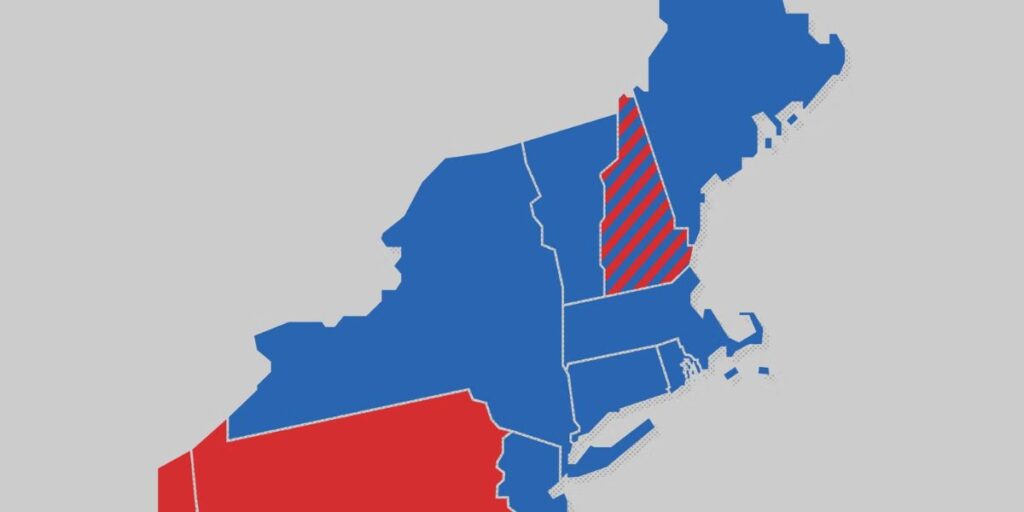New Hampshire, despite its small size and just four electoral votes, plays an outsized role in U.S. presidential elections.
Often described as a swing state, New Hampshire has a history of swinging between political parties, making it a critical focus for both Democrats and Republicans during national elections.
What Is a Swing State?
A swing state (also known as a battleground state or purple state) is a state where no single political party has overwhelming support, meaning the outcome of elections can swing either way.
Candidates from both parties often target swing states with heavy campaigning because they can tip the balance of electoral votes needed to win the presidency.
New Hampshire’s Voting History
Over the past several decades, New Hampshire has demonstrated a pattern of close and competitive elections, switching support between parties in both presidential and state-level races.
Here’s a look at recent presidential election results in New Hampshire:
| Year | Democratic Candidate | Republican Candidate | Winner |
|---|---|---|---|
| 2020 | Joe Biden | Donald Trump | Joe Biden (D) |
| 2016 | Hillary Clinton | Donald Trump | Hillary Clinton (D) |
| 2012 | Barack Obama | Mitt Romney | Barack Obama (D) |
| 2008 | Barack Obama | John McCain | Barack Obama (D) |
| 2004 | John Kerry | George W. Bush | John Kerry (D) |
| 2000 | Al Gore | George W. Bush | George W. Bush (R) |
As seen above, New Hampshire has gone blue in five of the last six presidential elections, but the margins have often been narrow, especially in 2000 and 2016. This indicates a competitive electorate.
Factors That Make New Hampshire a Swing State
- Independent Voters: Nearly 40% of New Hampshire’s registered voters are undeclared or independent, giving them the power to sway elections in either direction.
- Small Electorate: With a relatively small population, minor shifts in voter turnout can significantly affect election results.
- Early Primary Influence: New Hampshire holds the first-in-the-nation primary, giving it early political attention and influence in shaping party nominations and campaign strategies.
- Regional Diversity: The state includes a mix of urban, suburban, and rural areas with varied political leanings, from liberal college towns to conservative rural counties.
Congressional and State-Level Trends
While the state has leaned Democratic in recent federal elections, Republicans have had success at the state level, including in gubernatorial races and the state legislature. This further proves New Hampshire’s status as a politically diverse and unpredictable state.
Is New Hampshire Still a Swing State?
Yes, New Hampshire is still considered a swing state, though in recent cycles, it has leaned Democratic in presidential elections. However, due to its independent streak and history of close races, both parties continue to campaign aggressively in the state.
The unpredictable nature of voter turnout, independent influence, and New Hampshire’s pivotal early primary ensure that it will remain on the radar during every major election season.
Final Thoughts
While it may not carry the weight of bigger states, New Hampshire’s swing status makes it a key player in the American electoral process. Its voters are engaged, its margins are often tight, and its role in the primaries ensures that it will continue to draw national attention during every presidential race.




More Stories
Is New Hampshire a Swing State? Here is a Look at Its Political Identity
Is New Hampshire a Swing State? Here is a Look at Its Political Identity
Is New Hampshire a Swing State? Here is a Look at Its Political Identity